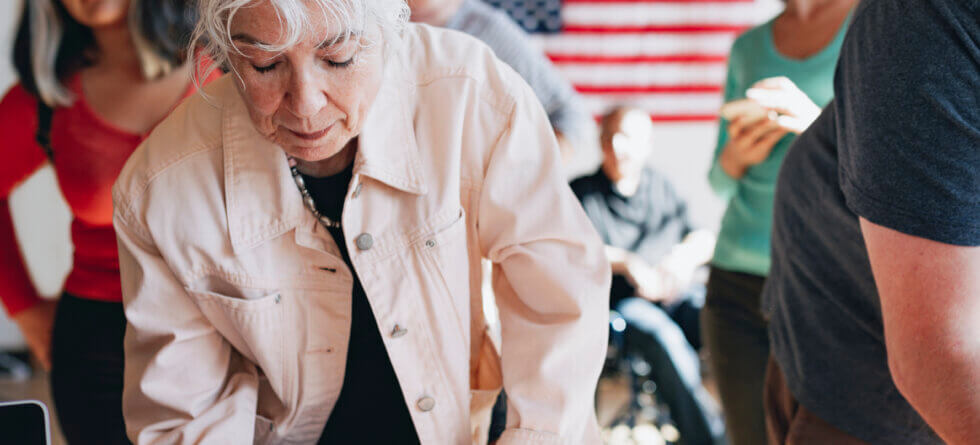In today’s society, the elderly population is growing rapidly, making it more important than ever to ensure their rights and needs are adequately addressed. Elder advocacy involves standing up for the rights of seniors to ensure they lead safe, healthy, and dignified lives. The movement not only focuses on protecting seniors from abuse and neglect but also emphasizes enhancing their quality of life. This article explores the importance of elder advocacy, the common rights overlooked, ways to promote these rights, and the role communities can play in supporting seniors.
The Importance of Elder Advocacy
As individuals age, they often face increased vulnerabilities, from declining health to diminished social networks and increased risk of abuse and exploitation. Elder advocacy seeks to combat these issues by ensuring that seniors have access to adequate healthcare, social services, and legal protection. Advocates also strive to uphold the dignity of seniors, ensuring they are treated with respect and compassion.
Moreover, elder advocacy supports the idea that seniors should have a voice in policies and decisions affecting their lives. This is not only a matter of rights but also of practicality, as seniors possess a wealth of experience and knowledge that can contribute significantly to society.
Rights Frequently Overlooked
Right to Adequate Healthcare
One of the most critical areas in elder advocacy is healthcare. Seniors often require more medical care due to age-related conditions, but they face barriers such as high costs, inadequate insurance coverage, and inaccessible healthcare facilities. Advocacy in this area ensures that seniors receive the medical services they need without undue financial burden.
Financial Security
Many seniors live on fixed incomes and are at risk of financial instability due to unforeseen expenses like medical bills or rising housing costs. Ensuring that financial assistance programs are available and accessible to those in need is a vital aspect of advocacy.
Protection from Abuse and Neglect
Elder abuse is a grave concern, encompassing physical, emotional, financial, and sexual abuse, as well as neglect. Advocates work tirelessly to highlight these issues, pushing for stricter laws and better resources for the detection and prevention of abuse.
Social Inclusion and Participation
Seniors often face loneliness and social isolation, which have significant impacts on their health and well-being. Advocates emphasize the importance of social inclusion and promote community involvement, ensuring seniors have opportunities to engage in social activities, hobbies, and volunteer roles that enrich their lives.
Promoting Elder Rights: Effective Methods and Approaches
Policy Advocacy
Influencing public policy is one of the most effective ways to advocate for senior rights. This involves lobbying for changes in laws and regulations that affect seniors, whether related to healthcare, pension rights, or elder protection laws. Advocates often work with lawmakers, participate in hearings, and mobilize grassroots movements to bring about change.
Education and Awareness
Raising awareness about elder rights and the issues affecting seniors is crucial. This can involve public speaking, workshops, and media campaigns to educate the public, including seniors themselves, about their rights and the resources available to help protect these rights.
Direct Support and Assistance
Providing direct assistance to seniors is another essential function of advocacy. This might involve offering legal assistance, helping seniors access government services, or directly intervening in cases of abuse or neglect.
Community Engagement
Building strong communities that support seniors is vital. This can include creating age-friendly spaces and ensuring that recreational programs and facilities are accessible to seniors. Encouraging intergenerational engagement can also promote mutual respect and understanding between the young and the old, enhancing societal cohesion.
The Role of Individuals and Communities
Volunteering
Individuals can volunteer their time with organizations that work directly with the elderly. Whether it’s helping with daily tasks, providing company, or assisting seniors in navigating healthcare and financial services, volunteers make a significant difference.
Advocacy Skills Development
Learning about advocacy, the law, and social services can empower individuals to advocate more effectively for senior rights. Many organizations offer training sessions and workshops for those interested in becoming more involved.
Support Age-Friendly Business Practices
Communities can support businesses that implement age-friendly practices, such as offering discounts to seniors, maintaining accessible premises, or providing services tailored to elderly needs. This not only enhances the economic well-being of seniors but also encourages their active participation in the community.
Conclusion
Elder advocacy is a critical area that demands attention as the global senior population continues to grow. By standing up for senior rights, society ensures that its oldest members live with the dignity, respect, and quality of life they deserve. Whether through policy reform, education, direct support, or community engagement, each action taken makes a significant difference. Moreover, the shared responsibility between individuals and communities in supporting our seniors enriches societal values and fosters a culture of care and respect across generations. As we advocate for elder rights, we not only improve the lives of our seniors but also strengthen the ethical foundation of our society.




